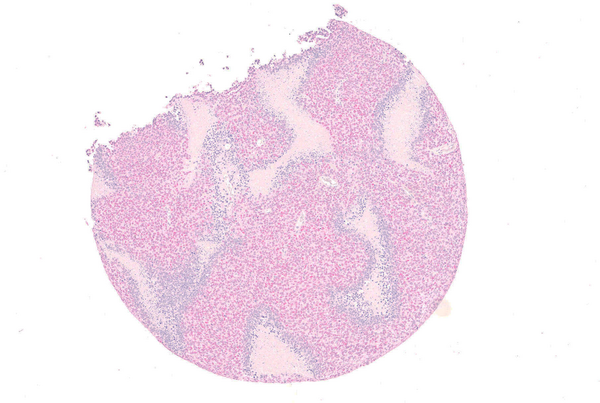Hopp Children’s Cancer Center Heidelberg (KiTZ) is a joint institution of the German Cancer Research Center (DKFZ), Heidelberg University Hospital (UKHD), and Heidelberg University (Uni HD).
After current standard therapies, about one third of Ewing sarcoma patients experience relapses - often with a fatal outcome. In order to understand how this cancer progresses and metastases develop, a team of scientists from the Hopp Children's Cancer Center Heidelberg, the German Cancer Research Center, and the Ludwig Maximilian University Munich has investigated the molecular drivers which can lead to relapse and metastasis in Ewing sarcoma.
One pivotal aspect is a genetic defect which leads to a cancer-driving mutation in the gene EWSR1-ETS. The protein encoded by the mutated EWSR1-ETS activates certain gene regulatory networks which then determine the course of the disease. As shown in the present study on Ewing sarcoma cells, the mutated key protein regulates several hundred genes in the tumor cells, which interact with each other in complex networks. The researchers correlated these data with the disease progression of 166 Ewing sarcoma patients and thus, identified a particularly promising switch in these genetic networks that could serve as a biomarker: In patients with unfavorable disease progression, tumor cells produced low levels of the gene regulatory protein TCF7L1. In addition, the scientists found significantly less TCF7L1 in metastases than in the primary tumors. "We therefore assume that the low amounts of this protein lead to the activation of genetic networks which tend to promote the aggressive course of the disease and the formation of metastases," explains Thomas Grünewald, head of the KiTZ research group and department head at DKFZ and UKHD.
Furthermore, as studies in mice have shown, restored TCF7L1 production was able to suppress the spread of metastases. In the future, TCF7L1 could be tested as a prognostic biomarker in Ewing sarcomas, suspects Florencia Cidre-Aranaz, who led the study with Thomas Grünewald: "The amount of TCF7L1 in tumor samples could be determined, for example, by staining in tissue sections," says Cidre-Aranaz from KiTZ and DKFZ.
This diagnostic approach could potentially be transferred to other types of cancer, such as breast cancer, colorectal cancer or acute lymphoblastic leukemia, in which the dysregulation of TCF7L1 also appears to promote tumor growth. Initial results from the lab further suggest that TCF7L1 may also be a suitable target to treat Ewing sarcomas in children and adolescents and prevent metastasis. The researchers intend to investigate this approach further in follow-up studies.
The study was supported by the Wilhelm Sander Foundation in Munich, the Dr. Rolf M. Schwiete Foundation in Mannheim, and the Barbara and Hubertus Trettner Foundation.
Wilhelm Sander Foundation: Partner of innovative cancer research
The Wilhelm Sander Foundation supported the research project with about 123,000 euros. The Foundation's stated objective is the promotion of medical research, in particular of projects concerned with the fight against cancer. Since its inception, the Foundation has contributed more than 250 million euros towards the promotion of research in Germany and Switzerland. This has made the Wilhelm Sander Foundation one of the most important private research foundations in German-speaking countries. It emerged from the estate of the entrepreneur of the same name, who passed away in 1973.
Original publication:
Cidre-Aranaz, F., et al. Integrative gene network and functional analyses identify a prognostically relevant key regulator of metastasis in Ewing sarcoma. In: Molecular Cancer (Online publication January 3, 2021) DOI: 10.1186/s12943-021-01470-z




